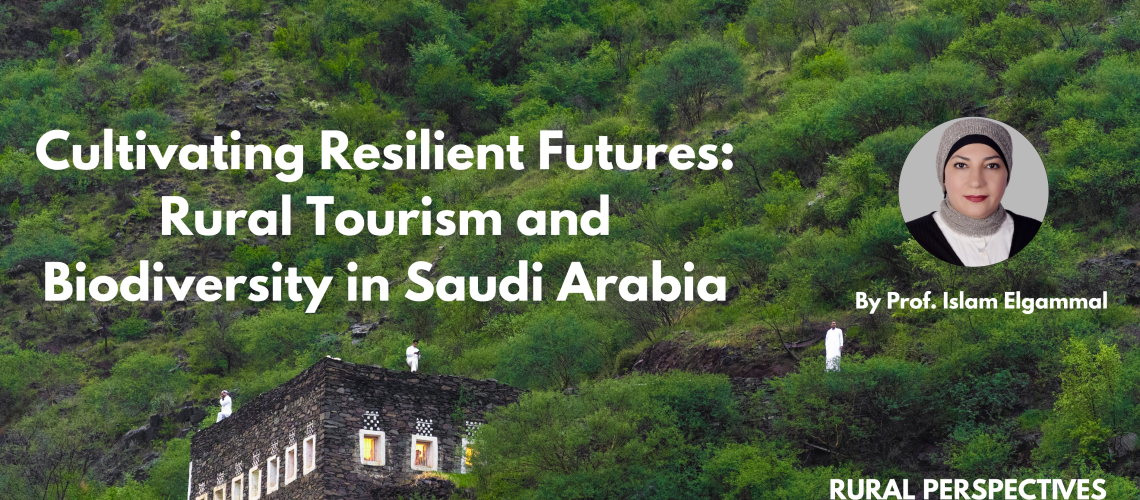As Saudi Arabia continues its transformative journey under Vision 2030, rural tourism has emerged as a powerful catalyst for sustainable development, economic diversification, and cultural preservation. Across the Kingdom, from the Asir highlands to AlUla’s heritage-rich landscapes, rural communities are becoming vibrant destinations, offering authentic experiences deeply rooted in tradition, biodiversity, and local stewardship. Rural tourism in Saudi Arabia is no longer confined to seasonal visits or scenic stopovers. It has evolved into a strategic development priority—promoting inclusive growth, empowering local communities, and showcasing the country’s rich ecological and cultural diversity. With the support of national initiatives such as the Saudi Green Initiative and the Kingdom’s Rural Development Program, the potential for immersive, community-led tourism experiences has expanded significantly.
Furthermore, Saudi Arabia’s rural landscapes are home to unique ecosystems—from desert oases and coastal mangroves to mountainous forests. These natural assets are not only vital to global biodiversity but also serve as the foundation for sustainable tourism offerings. Integrating nature- based solutions—such as guided eco-trails, wildlife observation, and conservation-led tourism— enhances visitor experiences while safeguarding delicate ecosystems. Programs that emphasize environmental education and visitor engagement in conservation efforts can amplify the value of biodiversity in tourism, transforming it from a passive backdrop to an active driver of sustainability. One of the most powerful ways to connect visitors with rural Saudi communities is through traditional food experiences. From Jareesh and Matazeez in Najd to Areeka in the south, engaging visitors in farm-to-table meals, local cooking classes, or village food festivals fosters deeper cultural understanding while supporting indigenous culinary knowledge and rural economies.
The Best Tourism Villages initiative by UN Tourism has had a notable impact in the region, inspiring Saudi villages to showcase their unique heritage, environmental stewardship, and community-based tourism models. Villages such as Rijal Alma’a, with its restored mud-brick architecture and living traditions, are exemplary of how tourism can align with ecological integrity and socio-economic empowerment. This recognition not only boosts the visibility of these destinations but also supports infrastructure development, policy alignment, and knowledge sharing across the region—critical components for scalable and sustainable tourism growth.
To strengthen the nexus between tourism, community engagement, and sustainability, it is essential to adopt a participatory approach. Empowering local stakeholders—particularly women and youth— through capacity-building, entrepreneurial support, and heritage preservation ensures that tourism development is inclusive and meaningful. Additionally, cross-sector collaboration between government entities, academic institutions, and local cooperatives can create innovative tourism models that balance economic gains with ecological responsibility.
Saudi Arabia presents a compelling case of how rural tourism, when thoughtfully planned and biodiversity-centered, can nurture resilient communities and regenerate ecosystems. The Kingdom’s natural and cultural capital offers immense potential to lead the region in redefining rural tourism, one that is immersive, inclusive, and environmentally conscious.
About the Author:
Prof. Islam Elgammal is a distinguished academic researcher with a prolific portfolio of publications in the fields of tourism, marketing, and organizational behavior. She had her PhD from Cardiff, UK in 2008 and she is a fellow of the Higher Education Academy in the UK. Prof. Elgammal has a number of publications in Academic journals and contributed to several conferences. She used to be the Vice Dean for postgraduates and research at Suez Canal University. Her recent work has been prominently featured in various high-impact journals, including the International Journal of Hospitality Management, Tourism Recreation Research, Tourism Review, Technological Forecasting and Social Change, and current Issues in Tourism.
(Disclaimer: The views expressed in this article are solely those of the contributor and do not necessarily reflect the opinions or views of UN Tourism or any affiliated organizations.)


